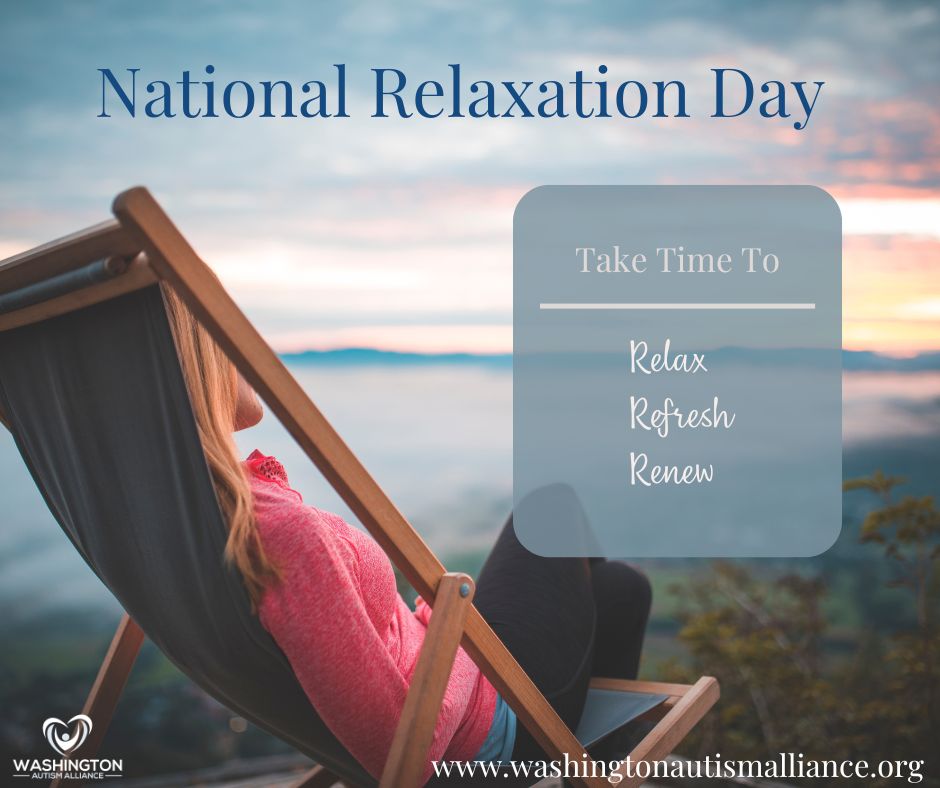
National Relaxation Day is a fantastic opportunity to focus on helping autistic individuals find relaxation and calm. Here are some ways to support them on this day and beyond:
1. Create a Calm Environment:
- Reduce Sensory Overload: Minimize loud noises, bright lights, and strong smells. Offer noise-canceling headphones or a quiet, dimly lit space.
- Sensory-Friendly Activities: Provide calming activities like listening to soft music, playing with fidget toys, or engaging in gentle rocking.
- Predictable Routines: Maintain regular schedules and provide visual schedules to reduce anxiety and increase a sense of control.
2. Encourage Relaxation Techniques:
- Deep Breathing Exercises: Teach simple deep breathing exercises to help manage anxiety and stress.
- Mindfulness and Meditation: Introduce mindfulness techniques or guided meditation tailored to their needs.
- Yoga and Stretching: Explore gentle yoga or stretching routines to promote relaxation and physical well-being.
3. Tailor Activities to Their Interests:
- Special Interests: Incorporate their special interests into relaxation activities. For example, if they love animals, watching nature documentaries or looking at pictures of animals could be calming.
- Sensory Preferences: Consider their sensory preferences when choosing activities. Some individuals might find deep pressure calming, while others might prefer light touch or proprioceptive input.
4. Communication and Support:
- Clear Communication: Use clear and concise language, and be patient if they need extra time to process information.
- Validate Emotions: Acknowledge their feelings and let them know it’s okay to feel stressed or overwhelmed.
- Offer Choices: Provide choices whenever possible to increase their sense of autonomy.
Additional Tips:
- Weighted Blankets or Vests: These can provide deep pressure input that some autistic individuals find calming.
- Sensory Toys and Tools: Fidget toys, chewable jewelry, and other sensory tools can help with self-regulation.
- Outdoor Activities: Spending time in nature can be incredibly calming. Consider a walk in a quiet park or a sensory-friendly garden.
- Professional Support: If needed, seek guidance from therapists or occupational therapists experienced in working with autistic individuals.
Remember:
- Every autistic person is unique, so what works for one may not work for another. Pay attention to their individual preferences and responses.
- Be patient, understanding, and flexible. Relaxation takes time and practice.
- Celebrate their successes and offer encouragement along the way.
By implementing these strategies and tailoring them to the individual’s needs, you can create a supportive and relaxing environment that helps them thrive.


